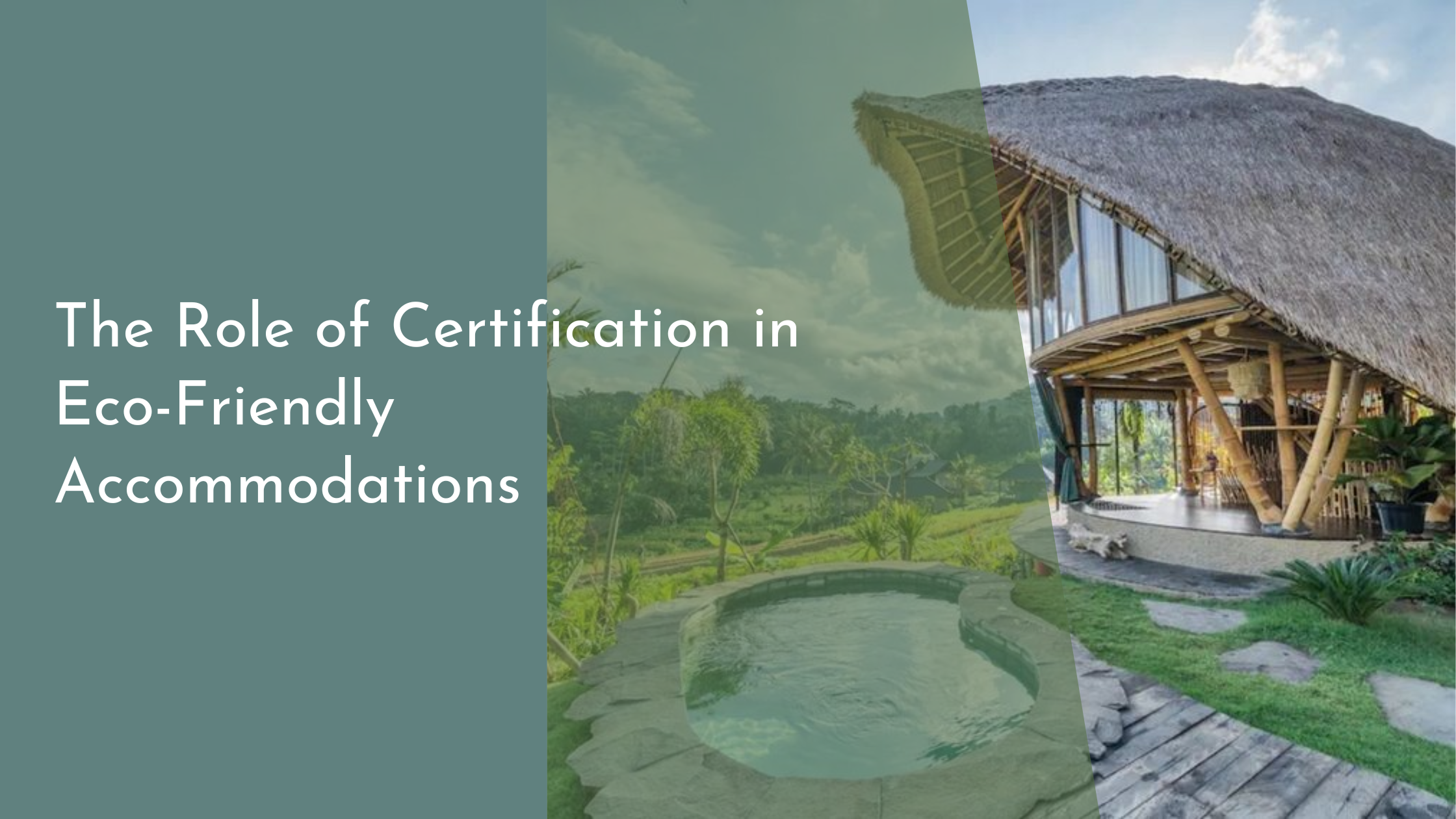The Role of Certification in Eco-Friendly Accommodations
In recent years, the hospitality industry has seen a growing demand for sustainable practices, driven by environmentally conscious travelers seeking accommodations that align with their values. Eco-friendly accommodations have emerged as a popular choice, providing guests with the opportunity to enjoy a comfortable stay while minimizing their environmental impact. Central to the credibility and transparency of these accommodations are eco-certifications, which serve as a benchmark for sustainability. This article delves into the role of certification in eco-friendly accommodations, exploring its significance, types, and the positive impact it fosters in the hospitality sector.
Understanding Eco-Friendly Accommodations
Eco-friendly accommodations refer to lodgings that prioritize sustainability in their operations, construction, and guest services. These accommodations often implement practices that reduce waste, conserve water, and promote energy efficiency. Some may feature renewable energy sources, such as solar panels, or use environmentally friendly materials in their construction and furnishings. Others may offer guests the chance to participate in green practices, like using recycling facilities or opting for linen reuse programs. By integrating these sustainable measures, eco-friendly accommodations aim to minimize their carbon footprint and support environmental preservation.
Beyond the tangible benefits, eco-friendly accommodations also cater to the increasing number of travelers who prioritize sustainability. Guests who choose these lodgings often appreciate the commitment to environmentally responsible practices, which can enhance their overall travel experience. Moreover, these accommodations can serve as educational platforms, raising awareness about the importance of sustainability among travelers. By promoting eco-friendly values, these accommodations help foster a culture of environmental responsibility within the hospitality industry and beyond.
The Significance of Certifications
Eco-certifications play a crucial role in distinguishing genuinely sustainable accommodations from those that may merely claim to be environmentally friendly. Certifications provide a transparent and standardized evaluation of a property’s sustainability practices, offering guests an assurance of credibility. This credibility is important as it helps travelers make informed decisions about where to stay, ensuring their choices align with their environmental values. Certifications also create a level playing field within the hospitality industry, encouraging accommodations to strive for higher standards of sustainability.
In addition to guiding consumer choices, certifications incentivize accommodations to enhance their sustainability practices. The process of obtaining certification often involves rigorous assessments and audits, which can highlight areas for improvement. As properties work to achieve or maintain certification, they are motivated to implement innovative practices and continually evolve their sustainability efforts. This drive for continuous improvement not only benefits the environment but also enhances the guest experience, as accommodations become more efficient and mindful of their ecological impact.
Types of Eco-Certifications Available
There are numerous eco-certifications available, each with its own criteria and focus areas. Some of the most recognized certifications include the Leadership in Energy and Environmental Design (LEED) certification, which evaluates buildings based on their design, construction, and operational sustainability. Another well-known certification is Green Key, which assesses hotels on their environmental management, waste management, and energy efficiency. These certifications provide a framework for accommodations to follow, ensuring they uphold high standards of sustainability across various operational aspects.
Beyond these, there are region-specific certifications that cater to local environmental concerns and regulations. For example, the EU Ecolabel is a certification that recognizes accommodations in Europe that meet stringent environmental criteria. Similarly, EarthCheck is a certification program widely adopted in the Asia-Pacific region, focusing on environmental and social sustainability. These diverse certifications allow accommodations worldwide to pursue recognition that resonates with their geographical and cultural context, ultimately fostering a global movement towards sustainable tourism.
In conclusion, the role of certification in eco-friendly accommodations extends far beyond mere recognition; it fosters a culture of accountability and continuous advancement in sustainability practices. By providing a standardized measure of environmental responsibility, certifications empower travelers to make conscious choices, support sustainable businesses, and contribute to the preservation of our planet. With a wide variety of certifications available, accommodations across the globe are encouraged to participate in this transformative movement, driving the hospitality industry towards a more sustainable and eco-conscious future. As guests become increasingly aware of their environmental impact, the positive influence of certifications will only continue to grow, reinforcing the importance of sustainability in creating a better world for all.




